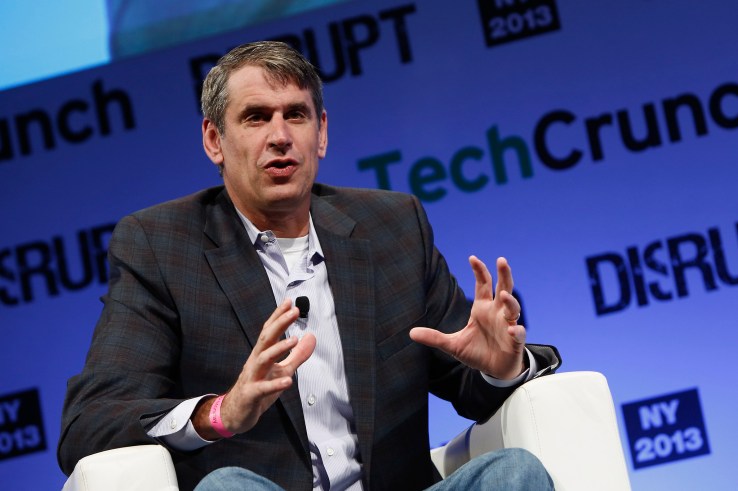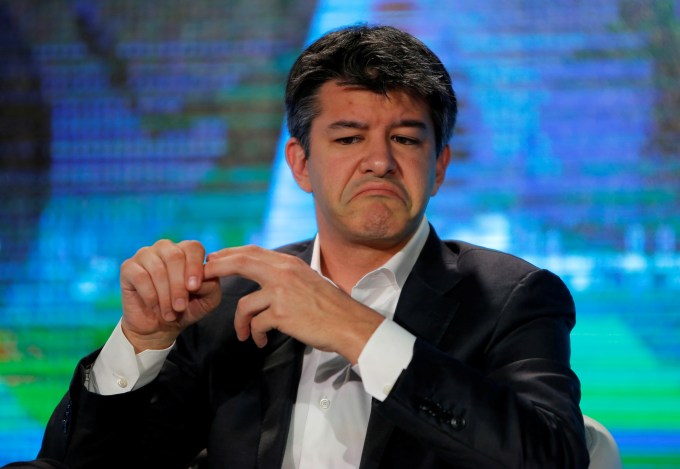Very famous VC Bill Gurley says startup boardrooms are now just filled with *clapping hand noise*

Fresh off a public spat between Uber investor Benchmark Capital and former Uber CEO Travis Kalanick, Benchmark general partner Bill Gurley took the stage in front of a large room of bankerfolk at the Goldman Sachs Internet and Technology Conference to talk about how startup boardrooms are now filled with a lot of cheerleaders that aren’t holding founders accountable.
“There’s a systematic problem in Silicon Valley, the venture capitalist board members are finding harder and harder to speak up and hold entrepreneurs responsible for financial performance,” Gurley said. “Our business has gotten super competitive. What the venture capitalist is afraid of is losing the next big one. If they get a reputation — years ago [some of the best venture capitalists] were known for storming into board rooms [to demand fiduciary responsibility] — if you get a reputation like that you won’t win the next deal.”
He then went on to say that “Silicon Valley board rooms have mostly become,” and then clapped his hands a few times to imply it was largely people applauding founders and giving them a lot of leeway. This isn’t hugely surprising, given a very big tiff between Benchmark and Uber that essentially led to the ouster of Kalanick. Following a wave of cultural problems, as well as a major lawsuit between Uber and Waymo over the acquisition of Otto (which settled last week, shortly after Kalanick gave his testimony), Benchmark sued Kalanick.

Uber CEO Travis Kalanick attends the summer World Economic Forum in Tianjin, China, June 26, 2016. REUTERS/Shu Zhang
“What my firm and I went through in 2017 was probably the least enjoyable experience of my life and certainly the hardest work product we’ve ever done,” Gurley said. “It’s not the type of work that inspires us to come in every day. A lot came more from a sense of fiduciary duty and obligation, which carry a super heavy weight because of the size of the company at the time. It wasn’t just a duty to our investors, but many people in the room had exposure because the list was so long. I take solace in the fact that if I look back from today to May or June, I would be hard pressed to bring forward an argument that the company is not in a much better position today.”
The FOMO — fear of missing out — argument is one that was wildly pervasive in Silicon Valley just a few short years ago. When on-demand was exploding and companies like Shyp and Luxe were fetching sizable valuations with large rounds of funding, there was a flurry of activity from investors that seemed to be jumping quickly to the next company with a lot of leeway for founders with ideas that made sense in theory. Of course, there’s been a big shakeout in the U.S., which has led to more mega-rounds in larger companies but fewer rounds in general.
Benchmark’s lawsuit was dismissed as a condition of SoftBank’s mega-investment in Uber, where Benchmark reportedly got some liquidation from its early investment. Dara Kosrowshahi has also said that Uber plans to become a public company in 2019, something Gurley says just makes companies better companies because they have a stronger fiduciary duty to their investors. All this, including appointing new CEO Dara Kosrowshahi, culminated in a final show that Uber was attempting to shed itself of as much baggage as possible related to Kalanick.
Separately, when asked about cryptocurrency, Gurley said everyone in the room is probably sick of talking about crypto and asked to move on to the next subject. The moderator then moved on to the next subject.